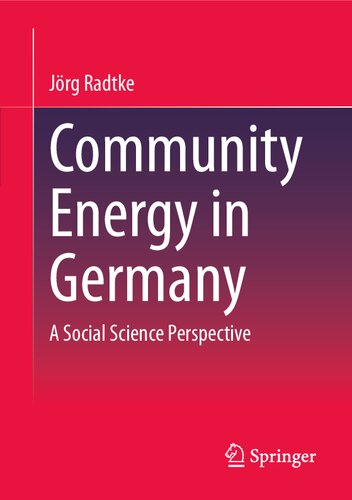

Most ebook files are in PDF format, so you can easily read them using various software such as Foxit Reader or directly on the Google Chrome browser.
Some ebook files are released by publishers in other formats such as .awz, .mobi, .epub, .fb2, etc. You may need to install specific software to read these formats on mobile/PC, such as Calibre.
Please read the tutorial at this link: https://ebookbell.com/faq
We offer FREE conversion to the popular formats you request; however, this may take some time. Therefore, right after payment, please email us, and we will try to provide the service as quickly as possible.
For some exceptional file formats or broken links (if any), please refrain from opening any disputes. Instead, email us first, and we will try to assist within a maximum of 6 hours.
EbookBell Team

5.0
100 reviewsIn this ground-breaking book, Jörg Radtke offers for the first time within research, a comprehensive insight into the range of organizational structures of community energy projects in Germany and their contribution to the Energiewende. Based on nationwide quantitative survey data and in-depth analyses of selected case studies of solar, wind and geothermal projects, Radtke documents the social structure and motivations of participating citizens. He examines new forms of material participation, community building and co-determination within the mostly volunteer-led community energy projects based on the civic engagement patterns of active “green citizens”. The author identifies a new form of individualistic participation and collective modes of action in line with new types of project-oriented participation between business, politics and civil society within sustainability transformation processes of the early 21st century.